This is the English translation of my Japanese article to appear in Nikkan San on June 19th, 2022, as a part of my bi-weekly column, “The Way of the Pianist.
I just came back from Greece, after ten days packed with beautiful moments of new friendships, musical exchange, delicious feasts and unforgettable sceneries.
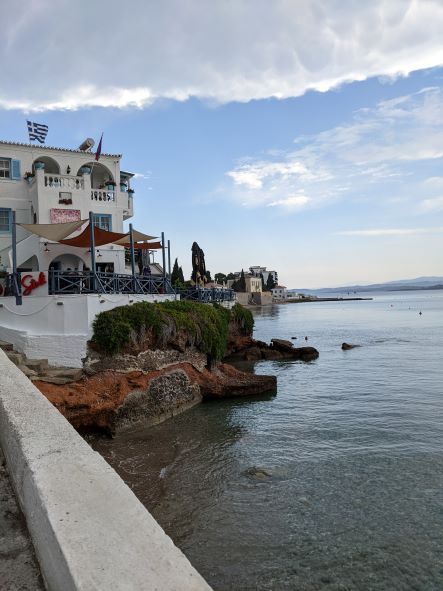
The island of Spetses 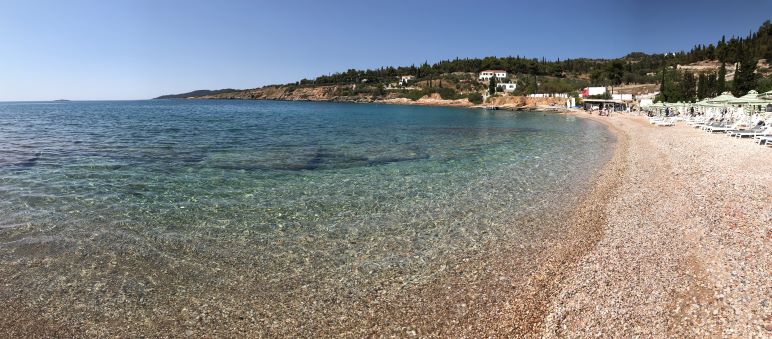
That color! 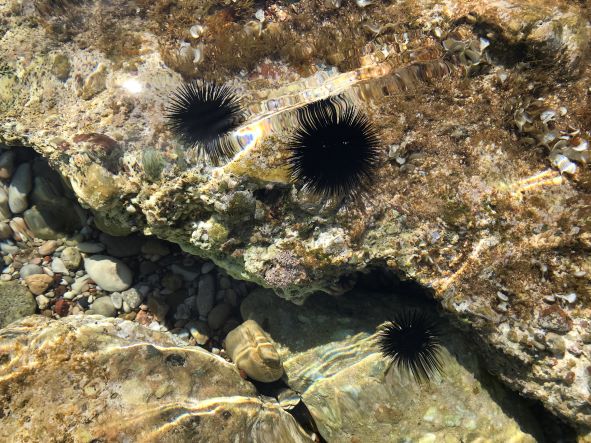
Sea urchin in the ocean 
Awesome… 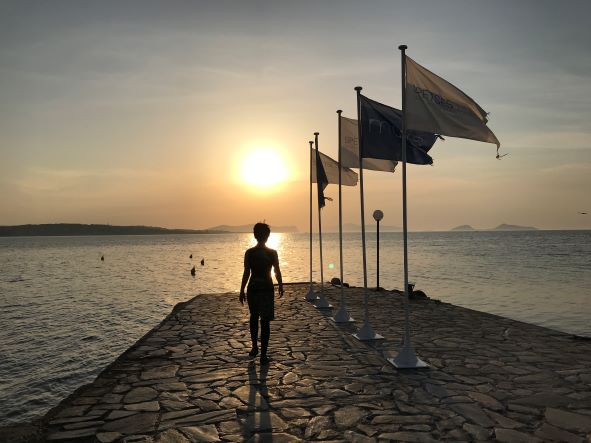
Sunset at the port
7 hours before our scheduled return flight, the U.S. government stopped requiring the negative COVID test for entry. All of those travel regulations and changes added some tensions to our first international trip since the onset of the pandemic. But all is well that ends well – our worries and hassles even a bit comedic in the hindsight.
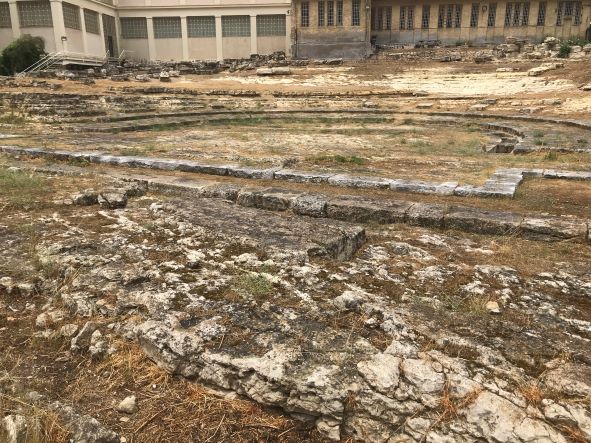
An old amphitheater 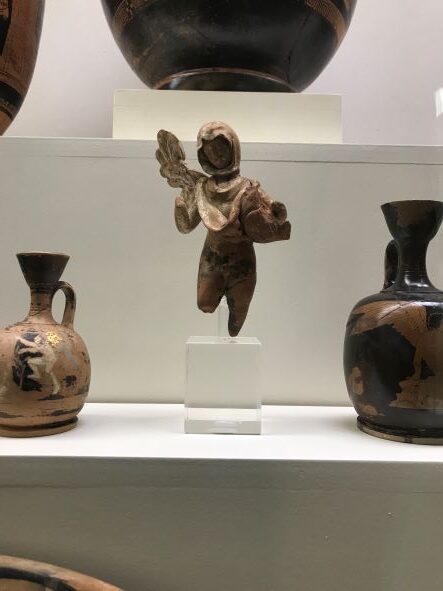
This angel… 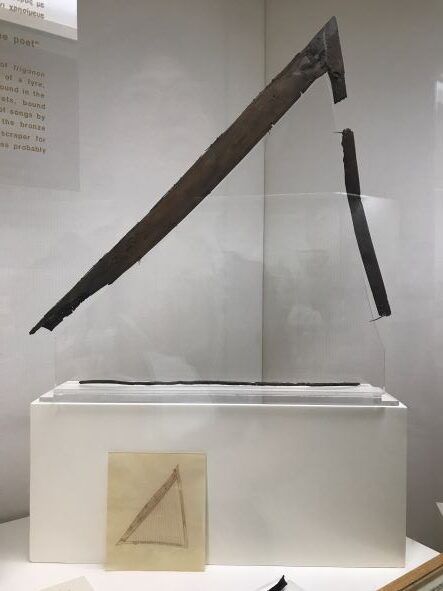
A harp from 4th BC
My very first flight to Athens was before smartphones. One, or two, solo recitals per week was my only job descriptions for my contract to be their “guest artist” on a cruise ship, otherwise traveling around as a passenger, and being paid for it. I thought I was dreaming. All travel expenses would probably have been reimbursed, including ground transportation, but with the mindset of a struggling artist, I took the public transportation from Athens airport to the port of Piraeus where my cruise ship was docked. I dragged my suitcases filled with books and music and concert attires for my month-long journey, resenting the cobblestone street, sweating profusely – very unglamorous.
I was already used to finding the information desk at the airports as soon as I got off any planes. There, I’d ask for the cheapest means of getting to my destination from the airport. Then, I’d go visit all of the currency exchange booths at the airport, looking for the best rate, before getting on the bus or the train. It was before Euros.
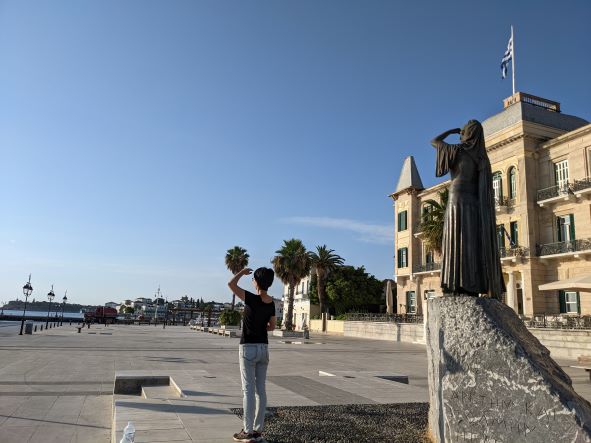
International trips have become much easier since then. My smartphones tell me much of what I need to know from the direction to my destination from the airport and estimated time of arrival. My tablet holds all my reading materials as well as my music. But the convenience has its cost.
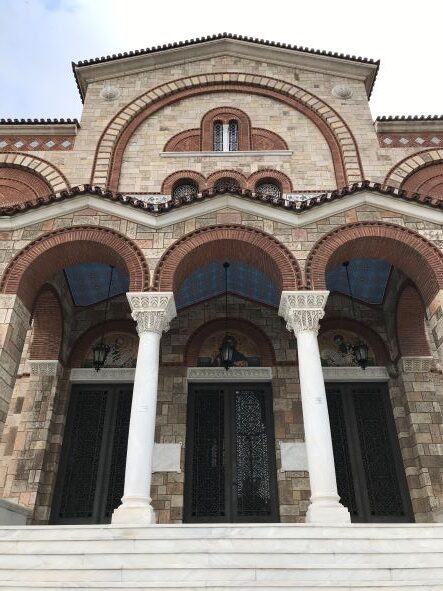
A Greek Orthodox Church 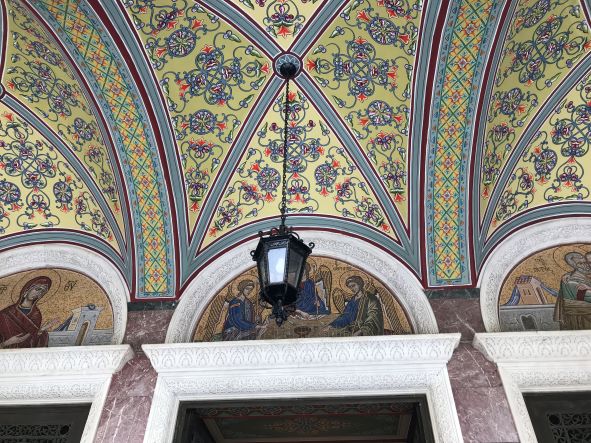
Beautiful
When my check-in luggage almost always exceeded the airlines weight limit with my books and music, I received help from so many strangers in almost every country I visited with my suitcases up and down the stairs. Once, a group of older ladies surrounded me on a bus when they found me hopelessly staring a huge map I could not decipher. Supplementing their speech I did not understand with wide vocal inflections, nods, and charade-like hand gestures, they were trying to tell me how to get to where I needed to go from the bus station.
And more than anything else, not having a smartphone in my hand meant that I used my sensory inputs so much more when I was traveling. I people-watched. I took notes of the fragrance in the air, the street noise, and the unfamiliar birdcalls. When I got lost, I had to ask a passerby for directions – I had no other choice.
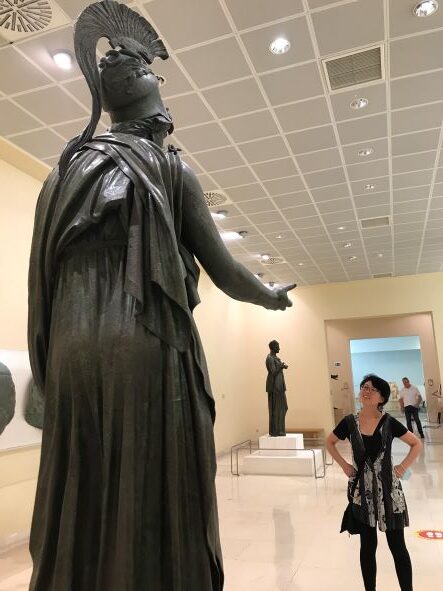
In a remote island we visited this time around in Greece, the internet was spotty, sometimes nowhere to be found on hours on end. And that helped me remember things. Most importantly, I remembered that the communal experience of acoustic music is so much more valuable today, because we have become so attached to our machineries that hold tight grips on our minds with glowing screens and digitized sounds. Let the power of music heal us all.
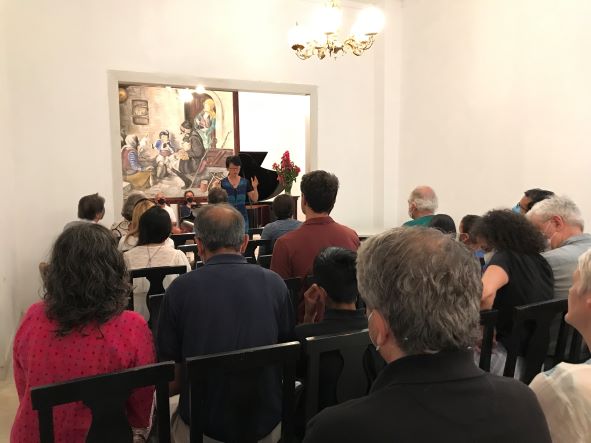
My concert 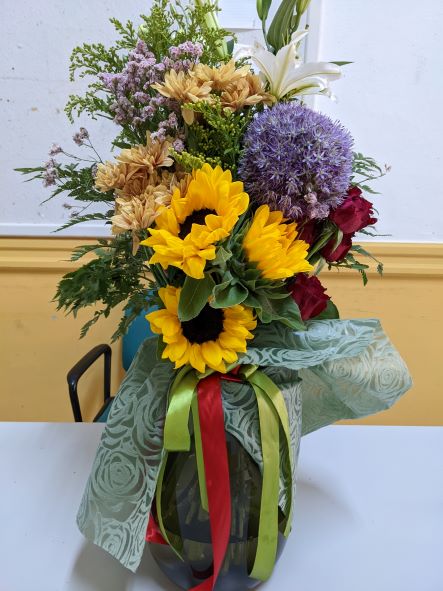
Beautiful flowers I received
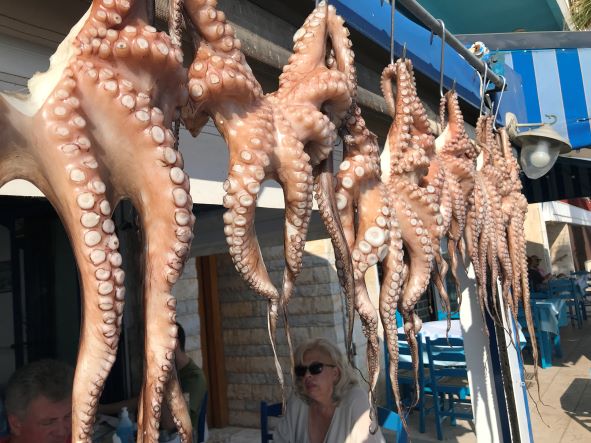
Octopus! 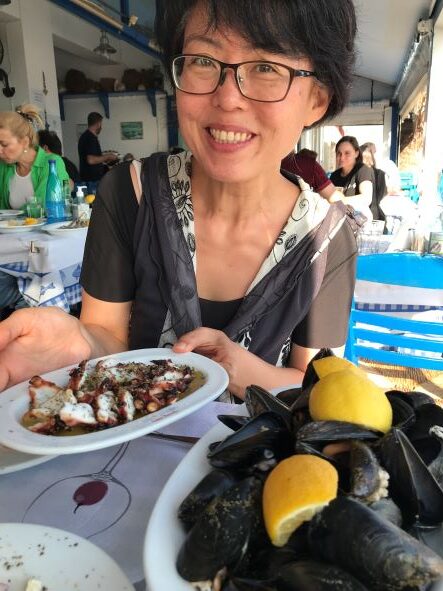
Seafood!